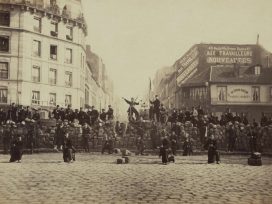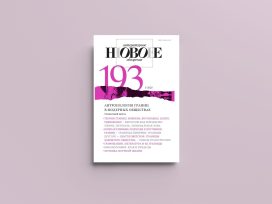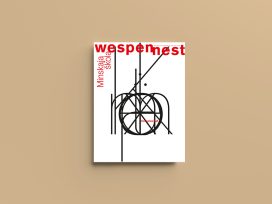Before I learned how to learn, I was full of bullshit. I exaggerate. But like any bright student, I spent a lot of time faking it, pretending to know things about which I had only vague generalizations and a fund of catch-words. Why do bright students need to fake it? I guess because if they’re considered “bright”, they’re caught in a tautology: bright students are supposed to know, so if they risk not knowing, they must not be bright.
In any case, I faked it. I faked it so well that even my teachers were afraid to contradict me. I faked it so well that I convinced myself that I wasn’t faking it. In the darkest corners of the bright student’s mind, the borders between real and fake knowledge are blurred, and he puts so much effort into faking it that he may not even recognize when he actually knows something.
Above all, he dreads that his bluff will be called – that an honest soul will respect him enough to pick apart his faulty reasoning and superficial grasp of a subject, and expose him for the fraud he believes himself to be. So he lives in a state of constant fear: fear of being exposed, fear of not knowing, fear of appearing afraid. No wonder that Plato in The Republic cautions against teaching the “dialectic” to future Archons before the age of 30: he knew that instead of using it to pursue “Truth”, they’d wield it like a weapon to appear cleverer than their fellows.
Sometimes the worst actually happens. The bright student gets caught with his intellectual pants down. I remember taking an exam when I was 12, speeding through it with great cockiness until I realized that I’d left out a whole section. I did what the bright student usually does: I turned it back on the teacher, insisting that the question was misleading, and that I should be granted another half hour to fill in the missing part. (Probably Mr Lipkin just gave in because he knew what a pain in the ass the bright student can be!)
So then I was somewhere in my early 30s. No more teachers or parents to impress; no more exams to ace: just the day-to-day toiling in the trenches, trying to build a life.
I had an old pal who kept beating me in squash. Off the court he was gentility itself. We had thoughtful, knowing conversations about politics and literature. To women he was the personification of courtliness; his voice was low, slow, and as resonant as a cello. But on the squash court he was a monster, a berserker, a mass murderer.
Squash requires politeness. The court is small and narrow. If played properly, the game resembles swing dancing, with players moving gracefully in and out of the central space. Not only etiquette but safety demands that the players be constantly aware of each other’s presence, so as not to smash each other in the head with sudden back swings. My friend had no idea of any of this. Whatever inner demon emerged on the court blinded him to anything but the little black ball, and possession of the central “T”. He’d already put 5 stitches in my eyebrow.
I wanted to beat the fucker. I had to beat him. It wasn’t just that he beat me every time, but the way he beat me – as if I were a stationary obstacle in his path. (You can ask: Dummy, why didn’t you just get another squash partner? But my friend’s demon had awoken one of mine, and there was no turning back.)
But I couldn’t beat him alone. I needed lessons.
The teacher that my squash club provided met me out on the court. She – she! – was a skinny British girl who looked like she was about 15. Her shoulders were narrow, her eyes downcast, as if she herself doubted that she could teach anybody anything.
I must be honest. I was furious. How dare they give me what I assumed was the dregs of their teaching staff? Was I such a bad player that all I deserved was a scrawny girl?
We started warming up. There was nothing grandstanding or pretentious about her form: she simply hit the ball consciously. She returned everything I offered with low, persistent strokes, and gradually started placing shots at challenging angles or just out of my reach. When we played a game, I could see that she wasn’t trying to humiliate me; she was just showing me possibilities, combinations, that I hadn’t considered before. Still, within 15 minutes I was exhausted; I hadn’t won a point.
Then I finally got it. I’d been playing by instinct, relying on a little basic quickness and strength – but playing completely without my brain. If I was going to improve, I’d have to start from the beginning, considering every move, and no doubt playing much worse before I’d start to play better. Most of all, I had to admit that I didn’t have a clue to what I was doing.
There was the key: to admit that I didn’t know. How obvious! But I’d never even considered it. But what a relief to not know. The world seemed to open up inside me. I didn’t have to know; I could not know, I could put myself in the hands of the teacher – and not just this teacher, all teachers, everything was there to be not known, and learned. When I describe it now, I see pictures of Asian masters with wispy beards teaching swordplay or meditation or flower arrangement, but at that moment I wasn’t thinking of masters; I was just relieved to finally know what it meant to be a student. Teach me. Feed me. I know nothing. I’m a bird with an open mouth.
The lessons began. It wasn’t like what I’d done before – trying to tie together disparate facts and ideas into something that looked halfway cohesive. This was basic stuff. Exercises repeated ad nauseam. Drills whose relevance wasn’t all that obvious. Thinking out strategies. Rather than faking it – which I couldn’t do anyway – I had to absorb what she was teaching me into my body; to tell the truth, it was mostly plain and simple repetition.
It wasn’t always fun. There were times when I hated her. I did get worse. Gradually I got better, too. Not that much better, but good enough at least to recognize what I was doing wrong.
I beat my friend. Once. Pleasure, pure pleasure! But maybe he was having an off day: I never beat him again. Finally I could see that his need to win outweighed any effort I was willing to muster to beat him, and that I had to choose between keeping a friend or battling him to the death. But now I knew how to learn. His gift to me.






